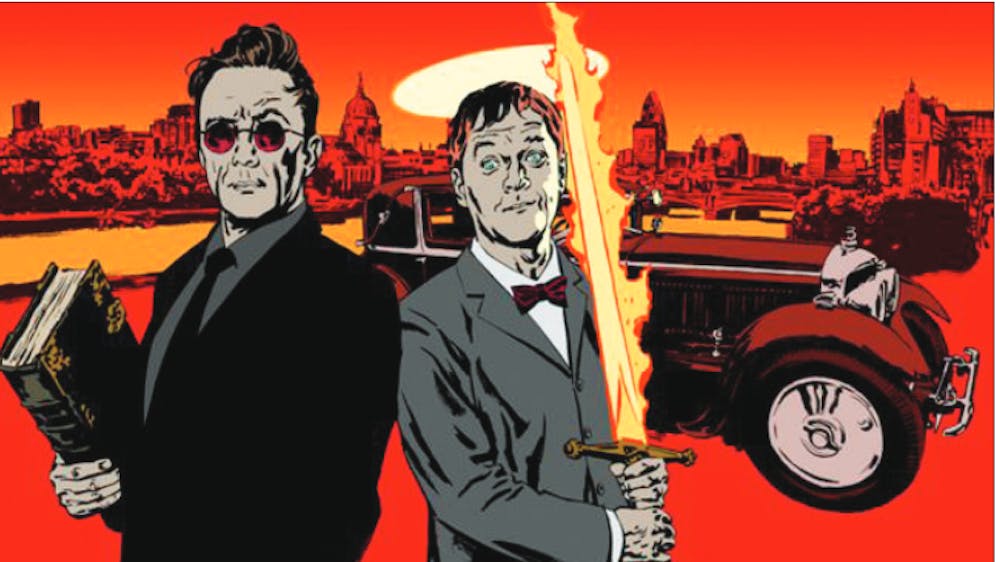“Good Omens” by Neil Gaiman and Terry Pratchett follows a whole host of characters including Crowley and Aziraphale, a demon and angel respectively; Adam and his friends, Dog the Hellhound, Anathema the occultist, Newt and Shadwell the witch-finders, and many others. The genre of this book is considered “horror fantasy comedy,” a mix of genres that sound like they should not go together but a mix Gaiman and Pratchett achieve seamlessly.
Aziraphale and Crowley have lived on Earth since “The Beginning” and have gotten to know each other very well. So well, in fact, that one might even call them friends. They hang out, do favors for each other, and now they must try to stop the anti-Christ together. Plan A was good, try to stop his evil impulses by disguising themselves as a nanny and gardener and raising the boy from behind the scenes. This, however, didn’t work because they got the wrong boy. Now they need a plan B.
Anathema is on the same mission, but with the help of her 300-year-old, and dead, ancestor Agnes Nutter, Witch. Nutter is the only prophet in all of history that has gotten all of her prophecies correct, although every prophecy has been written like a riddle. The witch-finders have also been noticing some weird happenings in Taddfield, where an 11-year-old Adam Young lives. Adam, on the other hand, is just trying to enjoy summer with his three best friends and new Dog, which is aptly named Dog.
While all this is going on, Heaven and Hell are preparing for war, and frankly, they don’t care much for humans as Crowley and Aziraphale do. The end of times is coming and they’ve been waiting to fight for millennia. The four horsemen of the apocalypse are being called: War, a journalist; Famine, a diet doctor and restaurant owner; Pollution, who has caused numerous natural disasters by slipping under the radar; and Death, who looks exactly like you’d expect death to look.
This book, I think, is mostly character-driven and asks questions like "why is there good and evil in the first place?" and "just become something is prophesied, does it mean it must happen?" This book is also so funny, both in the way the characters are and just in the way scenes are written. I believe the whole book is narrated by the God themself, who obviously knows and sees everything. One of my favorites lines is “He had heard about talking to plants in the early seventies, on Radio Four, and thought it was an excellent idea. Although talking is perhaps the wrong word for what Crowley did. What he did was put the fear of God into them. More precisely, the fear of Crowley.”
When this book was written in 1990, no one knew who Neil Gaiman and Terry Pratchett were; bestsellers like “American Gods,” “Coraline” and “The Witch's Vacuum Cleaner and Other Stories” were not even thought of yet. I believe this gave the two men more freedom to explore the storyline and characters because no one expected much of either author, and the reader can tell by the writing that the men had a lot of freedom to write what they wanted.
I'd recommend this book to everyone; it really has something for everyone, especially humor, romance, and philosophy.














